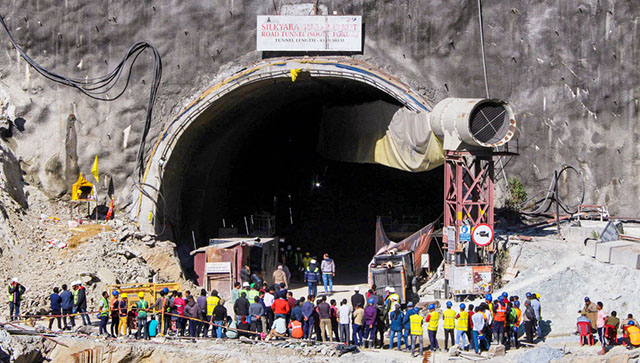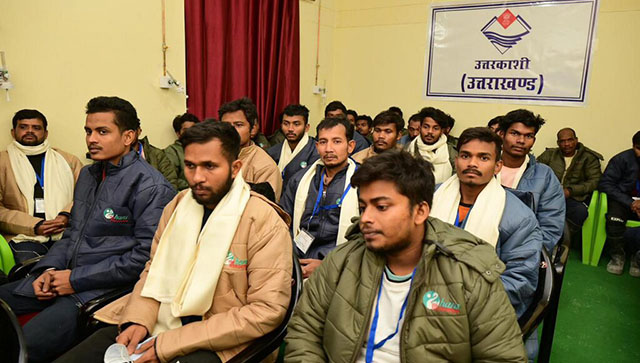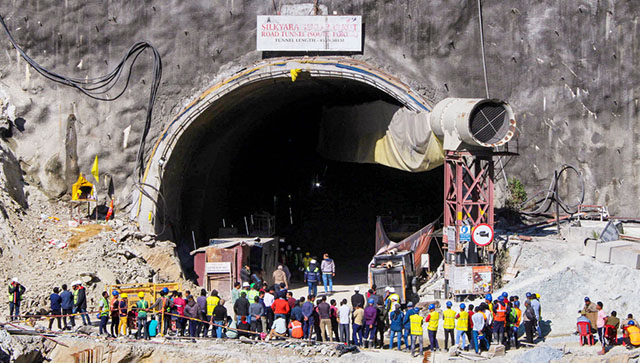The ordinance, and now Bill, to regularise the appointment of former Telecom Regulatory Authority of India (Trai) Chairman Nripendra Misra as Principal Secretary to Narendra Modi has drawn the usual politically-driven outrage. Why an ordinance? Why change the law for one man? Why sacrifice sacred principles?
These criticisms hold no water whatsoever. Let’s dispose of the argument that this law is being made for one man. If you want to quibble, we should say two men – both Misra and Modi can be considered interested parties to this. But beyond the quibble, is it really about humouring the whims of one man or even two men?
When a law is changed, it applies to everybody after the one man who first benefits from it. Single events may trigger changes in laws - like the Nirbhaya case which brought in an ordinance to change rape laws. Legal verdicts involving a single company can bring forth big changes. The Vodafone case bought us the retrospective taxation law on overseas asset transfers. Hypothetically, a law may say a blind man cannot be appointed a police constable or in the army, but once one man challenges it in court and wins his case, all blind men can benefit. Once the law is changed, it is no longer about one man, one woman, one company, one anything.
The more substantive issues relate to the need for an ordinance and whether the changes in the law are themselves justified.
In the political and parliamentary ruckus kicked up over the Bill yesterday (11 July), we had two Congress worthies taking the high road to criticism. Congress spokesman Abhishek Manu Singhvi asked : “Why this great glorious haste.”
Thiruvananthapuram MP Shashi Tharoor, quoted by The Times of India , talked of high-minded principles being sacrificed in this case. “Our concern is a concern of principles, which is that Trai was set up to be an independent body. The chairman would not be tempted by any particular prospective future employment, and therefore conduct himself completely independently. If you change this, then you are basically making the Trai chairman a handmaiden of the government which goes against the very intent of the original bill. Therefore, we oppose this bill.”
We will deal with both these high-sounding criticisms separately.
Was the ordinance route essential? I believe in this specific case - yes. Consider the circumstances. A new government has been elected. The Prime Minister is new to Delhi and needs a man he can fully trust, given the sensitive nature of his job. After 10 years of a government that has been particularly antagonistic and vindictive towards Modi, it would have been foolish on his part to assume that the Prime Minister’s Office would immediately forget its past loyalties to the Gandhi family and be devoted to executing Modi’s commands.
The Prime Minister himself was an outsider to Delhi. To run his new administration he needed an insider-outsider - someone who had high-level experience in the corridors of Delhi’s babudom and yet was not compromised by being too close to the previous regime or the system. Now, how many people fitted this bill? The numbers would be down to less than the fingers of one hand.
Against this backdrop and the political and economic paralysis left behind by the UPA, the new Prime Minister had to hit the ground running. Could he have done that with people he could not trust? Could he have waited for the budget session of parliament to bring forth a new bill, or spend weeks looking for the right man when one was readily available?
It is not as if anyone is cutting Modi any slack: he had barely moved to the PM’s office and everybody started the carping. They expected him to fix the economy, bring down inflation and spark off growth on Day Two of his administration.
If this was (and is) the expectation, what is wrong in starting with the right lieutenant on Day One? If at all there is a case for an ordinance, this one certainly qualifies.
Next, let’s look at Tharoor’s argument – that the issue is one of “principles”. This means the Trai law, which forbids former chairmen from ever serving the government, is supposed to be a matter of high principle. Is it? Or is the law an ass, which needs kicking out?
The Trai law, as it stood before the ordinance, said: “The chairperson or any other member ceasing to hold office as such, shall (a) be ineligible for further employment under the central government or any state government, or (b) not accept any commercial employment for a period of two years from the date he ceases to hold such office."
The purpose of this law, according to Tharoor, is to prevent the Trai chairman from becoming “the handmaiden” of the government.
Great thought. But there was not a yip out of Tharoor when every regulator’s job, every constitutional post, and almost every political posting was filled with ex-bureaucrats, ex-judges, and ex-politicos. The Indian Express published two articles in 2012 showing how retired babus never really retire, and ex-judges find sinecures all the time (read here and here ). Some 18 of the 21 Supreme Court judges who retired after 2008 were given post-retirement jobs by the government. This is what creates the potential for judges and babus to become “handmaidens” of government.
Consider the case of the present Trai chairman, Rahul Khullar. He retired as commerce secretary and went on to become Trai Chairman. If a man moves directly from babu to Trai, there is more scope for inferring that he may be beholden to the government since his job depended on his bosses’ benevolence.
Is this the case with Nripendra Misra, who comes to government five years after retiring as chairman of Trai in 2009? When he retired from Trai, coming back to government would have been the last thing on his mind. Becoming Principal Secretary to the PM was something completely unexpected, and had a lot to do with chance, especially since nobody could have predicted five years ago that Modi would ever have been PM.
Also look at the law itself: what is the logic of not allowing a former Trai chairman to serve government, when he can do so for a private party after two years? Is a former Trai Chairman more likely to be compromised by working for a private company or the government?
In fact, one can presume that the complete bar on Trai chairmen taking up any job in government may have been slipped in by babus themselves, since this would eliminate the internal competition for post-retirement jobs for themselves.
The Trai ban on Misra makes very little sense in itself – barring the one principle that superannuated babus and judges should not seek to take up jobs when they retire. But if we accept this point, we should equally accept that there is no case for allowing retired bureaucrats and judges to come back to government jobs or regulatory functions immediately after they hang up their boots. That creates more scope for nexus and handmaidenly behaviour than someone coming back well after retirement in a one-off case.
Also, is only the Trai job worthy of this life ban? Why not other regulators? Like Sebi or RBI? A past RBI Chairman is now the chairman of the latest Finance Commission. The former CJI is now head of the National Human Rights Commission.
Tharoor and his party need to rethink their arguments. Or accept that theirs is purely a political move to embarrass the Modi government.


)




)
)
)
)
)
)
)
)